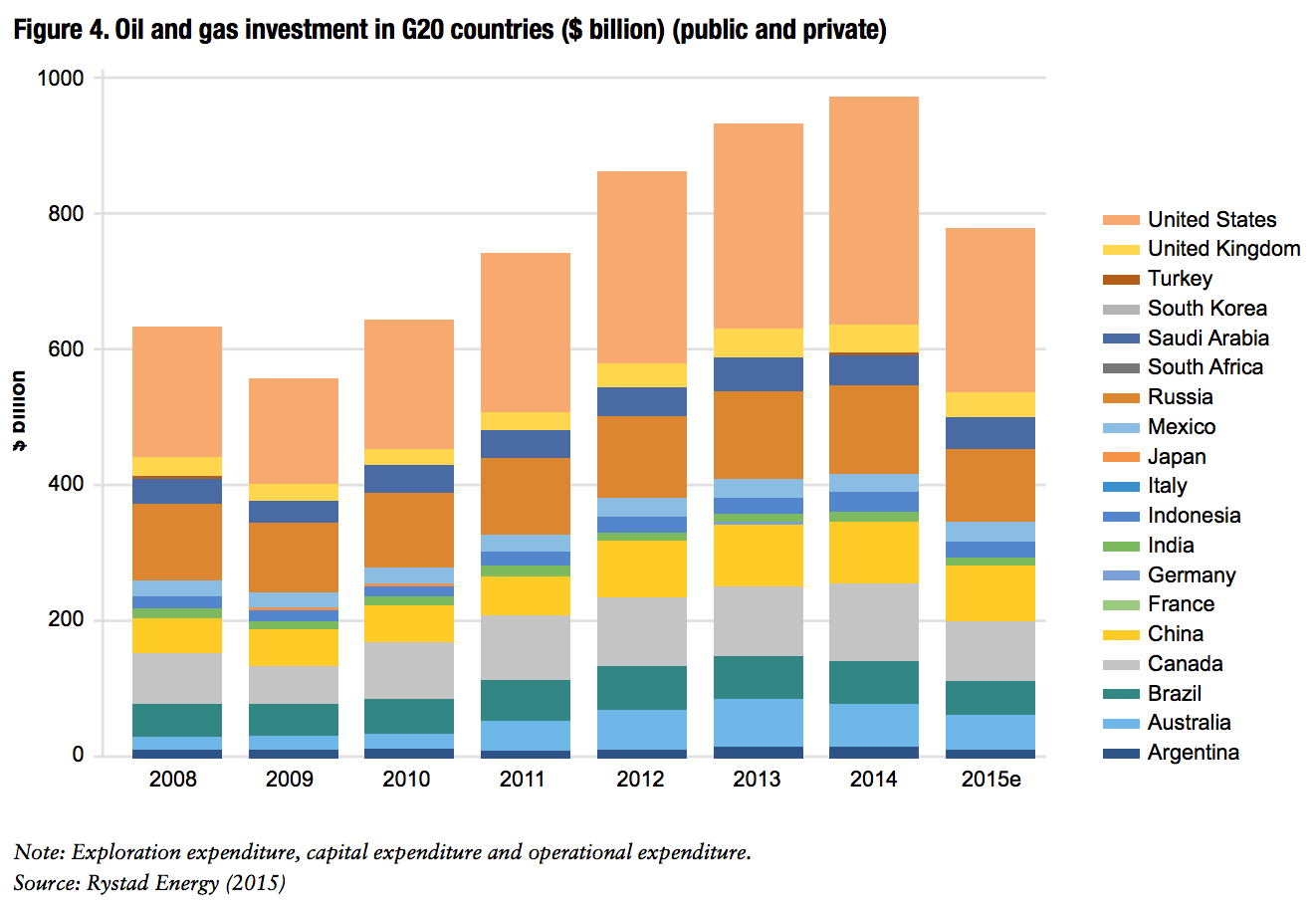A new joint investigative report by Oil Change International and the Overseas Development Institute reveals that, in the United States alone, the fossil fuel industry has benefited from over $20 billion per year in government subsidies between 2008-2015.
The percentage of subsidies has skyrocketed during the two terms of the Obama Administration, growing by 35 percent since President Barack Obama took office in 2009. The findings are part of a broader report on subsidies given to G20 countries ahead of the forthcoming G20 Leaders Summit in Antalya, Turkey, set to take place November 15-16.
“Since the initial G20 commitment in Pittsburgh six years ago, US subsidies have increased dramatically in [the Obama] Administration, in line with the increase in US oil and gas production,” said Steve Kretzmann, executive director of Oil Change International. “The President can and must do more to eliminate subsidies at home and to keep carbon in the ground in the time he has left.”
The broader numbers presented in the report are even more stark. G20 countries at-large have doled out some $452 billion per year in recent years subsidizing fossil fuel production, despite the overwhelming scientific consensus that burning fossil fuels leads to climate chaos.
By way of comparison, the renewable energy sector has received $121 billion in subsidies globally , according to the report.
Image Credit: Oil Change International, Overseas Development Institute
As the report details, subsidies occur throughout the fossil fuel exploration, production, midstream and downstream supply chain. This means subsidizing oil spills, in which oil companies can write off the cost of cleanup as a business expense, including the 2010 BP oil disaster in the Gulf of Mexico.
“A recent and notable example occurred in 2010 when BP claimed a $9.9 billion tax deduction due to $32.2 billion in reported cleanup costs for the Deepwater Horizon exploration drilling rig blowout and oil spill in the Gulf of Mexico,” details the report.
“The value of this subsidy is estimated to have been $679 million in 2014, however, the exact value is challenging to calculate as it is considered confidential, and because the level of subsidy is highly dependent on the number and extent of spills that incur remediation costs, which can vary greatly from year to year. In 2015, BP reached a final settlement with the US Government and five state governments totaling $20.8 billion. However, only $5.5 billion of this is in the form of a non-tax-deductible penalty, and the remainder can be written off by BP.”
The U.S. not only subsidizes fossil fuels on the domestic frontier, but also acts as a global fossil fuel subsidizing missionary force of sorts.
“Internationally, US public financing for fossil fuel production via the Overseas Private Investment Corporation (OPIC) and US Export-Import Bank (ExIm) averaged $3 billion annually in 2013 and 2014, with an additional $743 million annually through US shares of multilateral development banks,” explains the report.
That and much more can be found in the 100-plus page report.
The report’s release coincides with a November 14 day of action online and offline around the world, calling for an end to fossil fuel subsidies. Follow the action on Twitter at the hashtag #StopFossilSubsidies and on Flickr.
Photo Credit: David Carillet | Shutterstock
Subscribe to our newsletter
Stay up to date with DeSmog news and alerts







